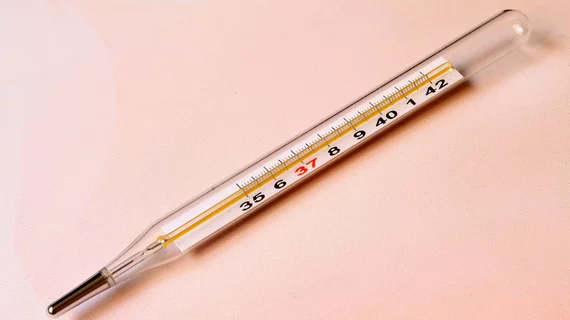British health system overspends on imaging, other tests for pediatric fever
Researchers in Britain are calling for better, faster tests to distinguish between viral and bacterial illness in children presenting to emergency rooms with a fever. Such a development would save children and their families the anxiety of unnecessary exams, including imaging, and make a meaningful dent in the financial burden on the U.K’s National Health Service.
The team arrived at this conclusion after finding that infants up to three months old had a mean treatment cost of around $1,310 per patient at Alder Hey Children’s Hospital, an NHS-affiliated pediatric care provider in northwest England.
By comparison, the system spent just $208 on children between 3 and 6 years old with similar symptoms.
BMC Medicine published the study online March 6.
The study’s lead author is Simon Leigh, a PhD candidate at the University of Liverpool’s Institute of Infection and Global Health. The team analyzed the cases of all patients under 16 who were examined over a one-year period for symptoms of illness that included fever of uncertain cause. The cohort comprised a total of 6,518 patients.
Leigh and colleagues estimated the economic impact of managing these cases, focusing on factors such as nurse/clinician time, hospital admission and imaging.
They found one source of likely over-testing in lesser-experienced physicians, who were strongly associated with higher resource use. This included actions such as the precautionary use of antibiotics.
Diagnostic advances that could increase confidence to withhold antibiotics “may yield considerable efficiency gains … where the perceived risks of failing to identify potentially life-threatening bacterial infections are greatest,” the authors concluded.

